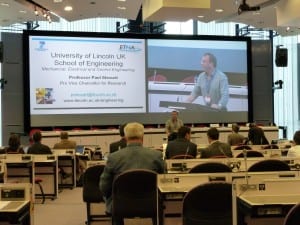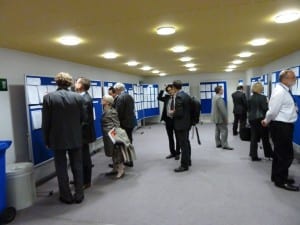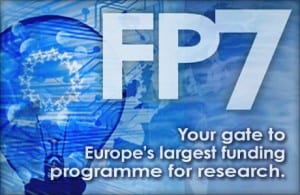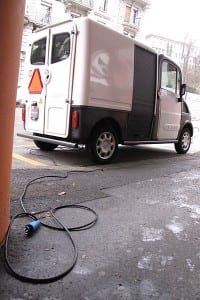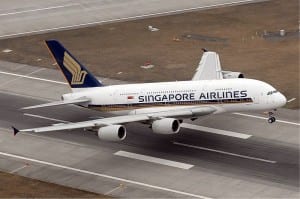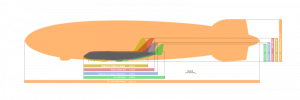
International research collaboration for Lincoln
Lincoln’s PVC Research, Professor Paul Stewart and Professor of Energy Conversion, Chris Bingham, have been awarded high profile European funding for a new research project.
The MAAT (Multibody Advanced Airship for Transport) project sees Profs Stewart and Bingham working as part of a global consortium to take forward airship technology, through funding from the Seventh Framework Programme (FP7).
The project is being led by the Universita di Modena e Reggio Emilia, Italy and the Lincoln team will focus on ‘Energy and Propulsive Systems’ with Paul in the role of principal investigator and Chris as co-investigator.
Prof Stewart said: “Airships are currently being developed by various organisations. They open up possibilities for the future of air travel; they are quieter, don’t require runways and are low carbon.
“Chris and I will be looking at how we can make the most efficient use of the energy generated by the photovoltaic cells on the outer body of the airships. We will focus on elements such as the electrical power systems, energy storage and propulsion and the control systems used for flying. By introducing innovative systems we can overcome the limitations of traditional propellers at high altitudes.”
The €multi-million project will run over three years and is one of two FP7-funded projects recently secured by the University. FP7 is the EU funding programme for research and technological development and is open to all disciplines – including social sciences and humanities. With a budget of €50 billion FP7 funds a range of project types, from large scale strategic collaborative research to individual fellowships. It runs until 2013, with new calls for proposals each year.
Why participate in FP7 research?
- • Internationalisation of research
- • Benchmarking performance in European context
- • Range of project types (multi-disciplinary, industrial)
- • Networking opportunities – research and teaching
- • Opening up new opportunities
- • Mobility of staff and students
- • Research capacity
- • Pan-European university networks
- • Links to ‘third stream’ activities
The UK does exceptionally well out of all the countries involved in FP7. A recent UKRO report highlighting UK success rates found that:
- • proposals from UK applicants were the second highest number from any country (as of October 2010).
- • the UK has an above average applicant success rate: 24.5%, as opposed to 21.9% for the EU as whole. It also has a higher ‘financial contribution’ success rate: 22.6% as opposed to 20.9%.
- • to date, 3721 grant agreements have been signed. 19% of participants are from the UK, the second highest number of participations.
- • 23.3% of EU funding has gone to UK beneficiaries; again, this is the second largest budget share.
- • the UK also has an above average SME success rate: an applicant success rate of 22.1%, against EU 19.4%; a financial contribution success rate of 21.4%, against EU 18.3%.
The University’s David Young, Senior Research Facilitator in the Research and Enterprise Office, is keen to advise and support staff with applications to this fund. For more information about the application process or the specific programmes within the framework contact him via email or on ext 6902.
